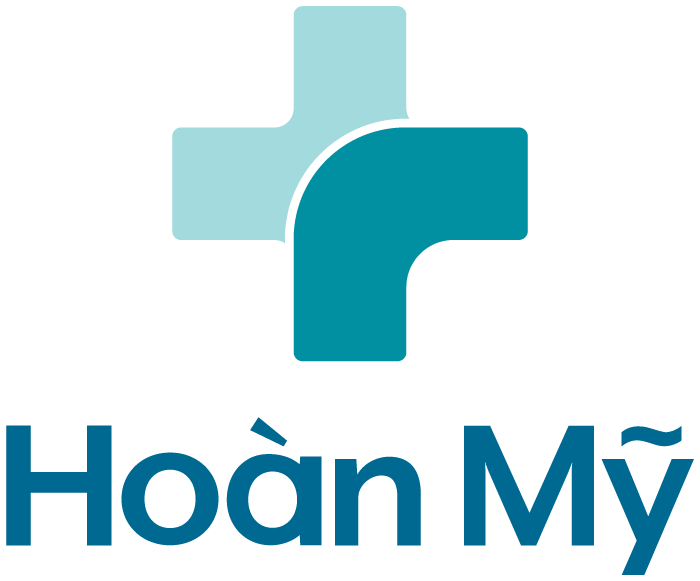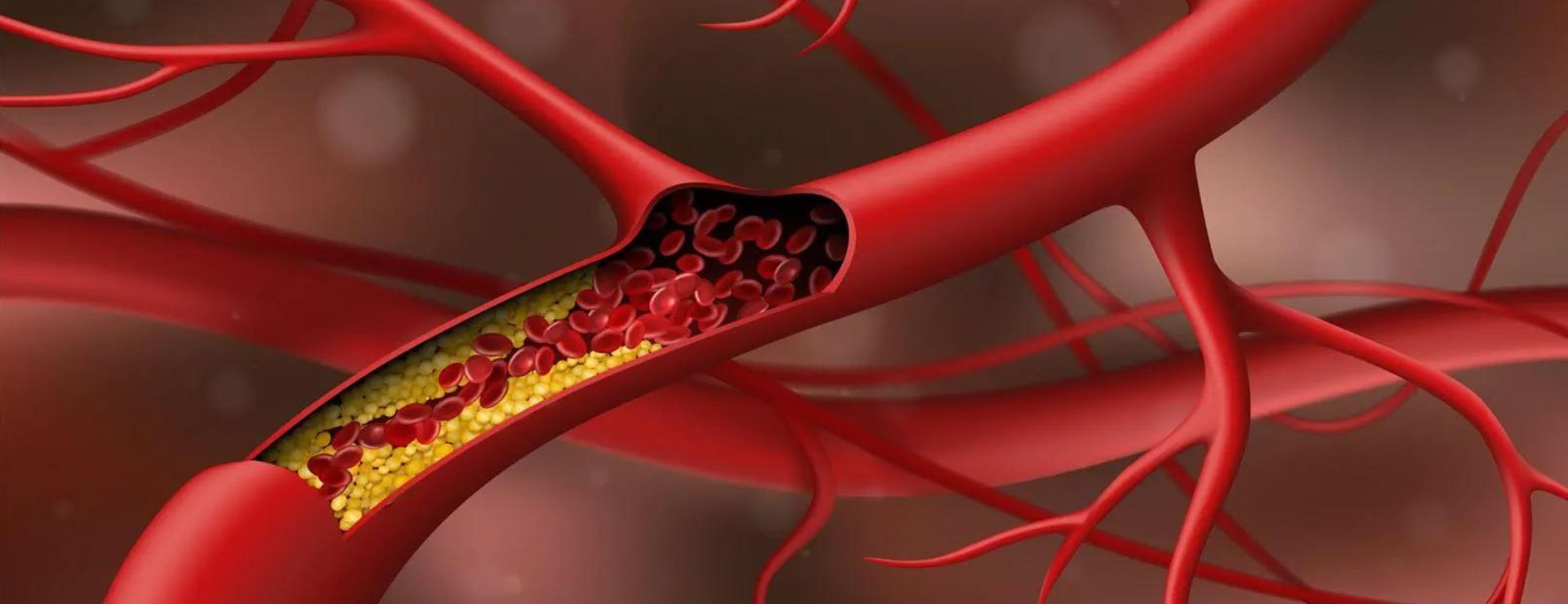Cholesterol đóng vai trò quan trọng đối với quá trình xây dựng tế bào, sản xuất hormone, vitamin trong cơ thể,… Tuy nhiên, nồng độ Cholesterol xấu tăng cao có thể gây hại cho sức khỏe, dẫn đến rất nhiều biến chứng đáng lo ngại như bệnh tim mạch, đột quỵ, tăng huyết áp,… Trong bài viết dưới đây, cùng Hoàn Mỹ tìm hiểu các biện pháp hữu ích giúp ổn định chỉ số Cholesterol ở mức lý tưởng, để bảo vệ cơ thể luôn khỏe mạnh.
>>> Xem thêm:
- Gan nhiễm mỡ: Nguyên nhân, triệu chứng và cách chữa trị
- Men gan cao: Các mức độ, nguyên nhân, triệu chứng và cách phòng ngừa
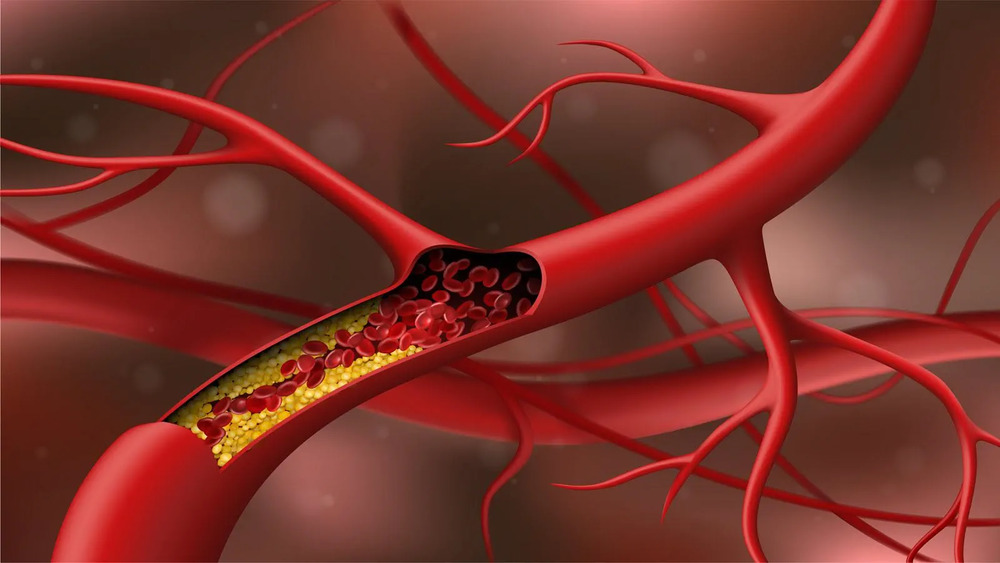
Cholesterol là gì?
Cholesterol là một loại chất béo không tan trong nước, được sản xuất ở gan và tồn tại ở mọi tế bào trong cơ thể con người. Chất này được vận chuyển trong máu nhờ lipoprotein (do gan sản xuất).
Cholesterol liên kết với hai loại lipoprotein chính, tạo thành: Low density lipoprotein Cholesterol – LDL Cholesterol xấu và High density lipoprotein cholesterol – HDL cholesterol tốt.
Chất béo này đóng vai trò rất quan trọng đối với sự phát triển của cơ thể, trực tiếp tham gia vào quá trình xây dựng tế bào, sản xuất vitamin, hormone cần thiết. Tuy nhiên, nếu nồng độ quá cao của chúng có thể liên kết với các chất khác trong máu để tạo thành mảng bám. Điều này dẫn đến động mạch bị thu hẹp hoặc tắc nghẽn, là nguyên nhân hàng đầu gây ra chứng xơ vữa động mạch.
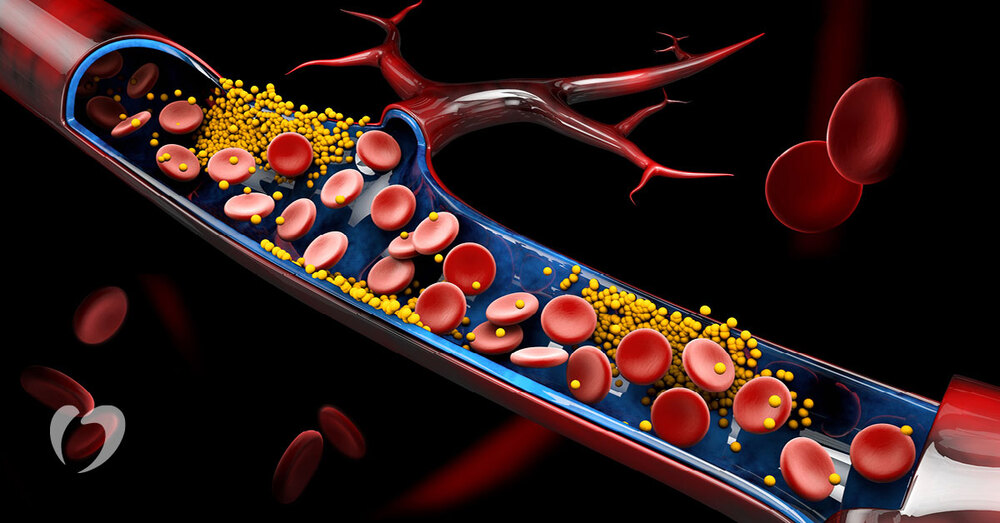
Phân loại cholesterol
LDL cholesterol
LDL cholesterol (xấu), chiếm phần lớn lượng cholesterol trong máu, thực hiện chức năng vận chuyển cholesterol từ gan đi đến các cơ quan ngoại vi. Nếu nồng độ LDL cholesterol quá cao, sẽ lắng đọng trong thành mạch, gây ra tình trạng xơ vữa động mạch, gây hẹp lòng mạch, làm tăng nguy cơ hình thành cục máu đông. Đây là nguyên nhân hàng đầu dẫn đến đột quỵ, mỡ máu, nhồi máu cơ tim, đe dọa trực tiếp đến tính mạng.
Nồng độ LDL – Cholesterol tăng cao chủ yếu do chế độ ăn uống, sinh hoạt thiếu lành mạnh, hút thuốc lá, lười vận động,… Ngoài ra, tình trạng này cũng thường xảy ra ở người bệnh đái tháo đường và cao huyết áp.
HDL cholesterol
HDL Cholesterol (tốt), chiếm khoảng 25 – 30% tổng số cholesterol trong máu, thực hiện chức năng vận chuyển cholesterol dư thừa từ các bộ phận khác trong cơ thể trở về gan để tiến hành đào thải ra ngoài. Nồng độ HDL cao sẽ làm giảm nguy cơ hình thành cục máu đông, ngăn biến chứng xơ vữa động mạch, đột quỵ và nhồi máu cơ tim.
Chỉ số HDL giảm thường liên quan trực tiếp đến thói quen hút thuốc lá, thừa cân béo phì, lối sống ít vận động,…
Triglyceride
Triglyceride cũng là một loại chất béo trong cơ thể nhưng thực hiện chức năng khác cholesterol, chủ yếu được sử dụng để tạo ra năng lượng. Nồng độ quá cao sẽ gây ra nhiều vấn đề sức khỏe đáng lo ngại như: bệnh tim mạch, viêm tuỵ cấp,…
>>> Xem thêm:
- Nhồi máu cơ tim là gì? Dấu hiệu và Cách sơ cứu từ bác sĩ
- TOP 10+ loại thuốc chống đột quỵ phổ biến hiện nay
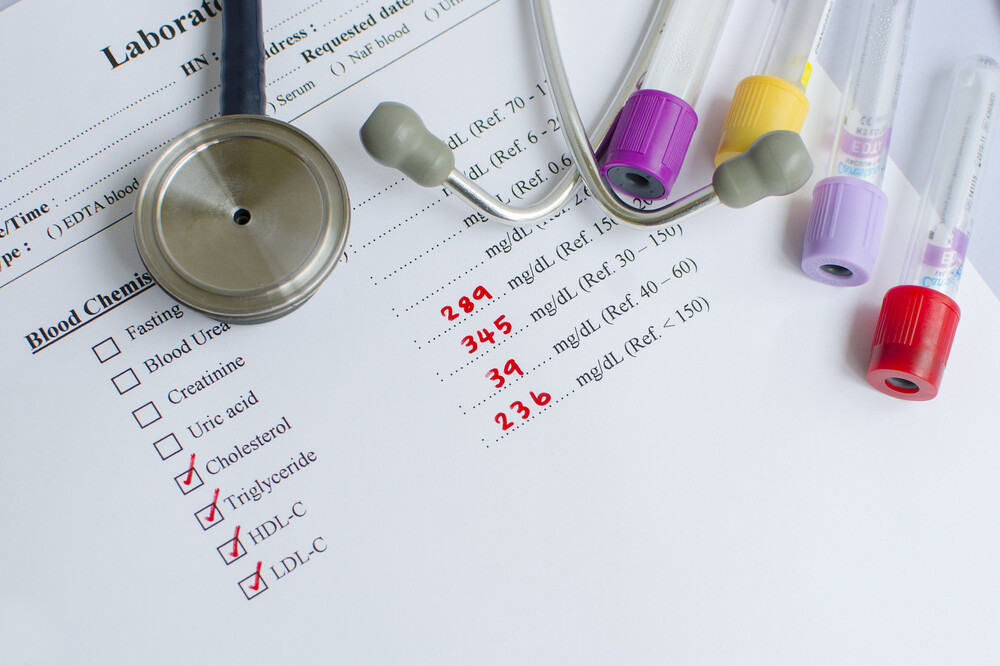
Các chỉ số nồng độ Cholesterol trong máu
Nồng độ Cholesterol trong máu có ảnh hưởng rất lớn đến tình trạng sức khoẻ. Một số chỉ số quan trọng có thể kể đến như:
Nồng độ Cholesterol an toàn
Nồng độ Cholesterol được đo bằng đơn vị mmol/L (trong 1 lít máu). Giá trị tham chiếu trong ngưỡng an toàn được xác định như sau:
- Cholesterol toàn phần: < 5,2mmol/L
- LDL-C: < 3,4 mmol/L
- HDL-C: > 0,9 mmol/L
- Triglycerid: < 1,7 mmol/L
Để xác định những chỉ số này, bác sĩ sẽ chỉ định thực hiện xét nghiệm máu. Triglycerid cũng được kiểm tra cùng lúc để chẩn đoán tình trạng rối loạn lipid máu. Tuy nhiên, những chỉ số này còn phụ thuộc vào một số yếu tố nguy cơ khác. Chẳng hạn như, người bị đái tháo đường hoặc tăng huyết áp thường sẽ có ngưỡng cholesterol toàn phần an toàn thấp hơn so với bình thường.
Nồng độ Cholesterol cao
Cholesterol cao là bao nhiêu? Nồng độ chất béo này trong máu được xác định là cao khi đạt ngưỡng sau đây:
- Cholesterol toàn phần: > 6,2 mmol/L.
- LDL cholesterol: > 4,1 mmol/L.
- HDL cholesterol: <1,03 mmol/L.
- Triglyceride: > 2,3 mmol/L.
Nồng độ Cholesterol thấp
Nồng độ Cholesterol trong máu được xác định là thấp khi chỉ số nhỏ hơn 170g/ml. Giới hạn cụ thể tuỳ thuộc vào các yếu tố như độ tuổi, giới tính của người bệnh.
>>> Xem thêm: Huyết áp bình thường là bao nhiêu? Chỉ số huyết áp theo độ tuổi?
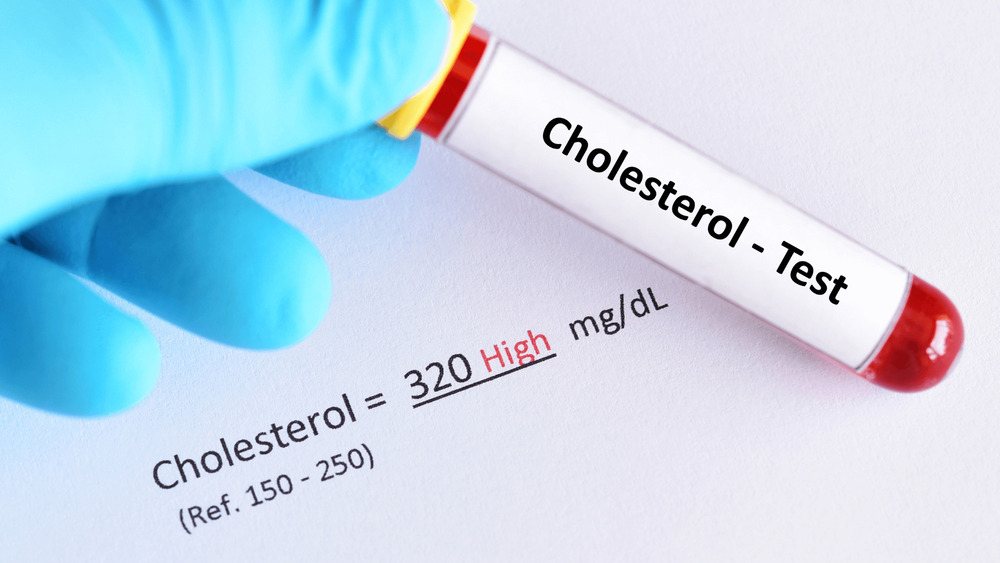
Cholesterol trong máu cao do những nguyên nhân nào?
Tình trạng cholesterol trong máu cao có thể xuất phát từ các nguyên nhân sau đây:
- Thói quen ăn uống thiếu lành mạnh: Thường xuyên ăn khuya, ăn không đúng bữa, ăn quá nhiều dầu mỡ (đặc biệt là mỡ động vật), chế độ ăn thiếu chất xơ,…
- Thói quen hút thuốc lá: Nicotine trong thuốc lá sẽ làm giảm lượng HDL tốt và tăng LDL xấu. Điều này gây ảnh hưởng đến quá trình đào thải cholesterol ra khỏi cơ thể, làm tăng triglyceride, dễ dẫn đến xơ vữa động mạch.
- Lạm dụng rượu bia: Khi làm dụng loại đồ uống này không chỉ dẫn đến rối loạn sử dụng rượu mà còn gây ảnh hưởng đến chức năng gan, làm giảm tốc độ đào thải chất béo xấu ra khỏi cơ thể, dẫn đến nồng độ cholesterol tăng cao.
- Lối sống ít vận động: Ít vận động trong thời gian dài có nguy cơ làm cản trở quá trình trao đổi chất và tiêu hoá chất béo trong cơ thể, dẫn đến tăng cholesterol trong máu.
- Tuổi tác: Lượng cholesterol trong máu có xu hướng tăng lên khi cơ thể già đi.
- Cân nặng: Người thừa cân, béo phì với có chỉ số khối cơ thể (BMI) từ 30 trở lên thường có nồng độ cholesterol cao hơn bình thường.

Các biến chứng xảy ra nếu Cholesterol cao
Tình trạng cholesterol trong máu cao nếu không được điều trị kịp thời có thể dẫn đến nhiều biến chứng sức khỏe đáng lo ngại như sau:
- Xơ vữa động mạch máu: Cholesterol trong máu cao là nguyên nhân khiến các mảng bám tích tụ và làm thu hẹp động mạch, gây cản trở quá trình lưu thông máu, oxy, về lâu dài dẫn đến tình trạng xơ vữa mạch máu.
- Gây ra các cơn đau tim và đột quỵ: Tình trạng tắc nghẽn động mạch do nồng độ cholesterol cao sẽ khiến tim và não bộ bị thiếu hụt máu, oxy. Đây là điều kiện thuận lợi để bùng phát các cơn đau tim, đột quỵ. Triệu chứng ban đầu là mệt mỏi thường xuyên và kéo dài.
- Tăng huyết áp: Chất béo xấu này trong máu tăng cao gây tắc nghẽn động mạch, cản trở lưu thông máu, oxy, khiến tim phải hoạt động nhiều hơn bình thường. Đây là nguyên nhân khiến huyết áp tăng cao.
- Sỏi mật: Nhiều kết quả nghiên cứu cho thấy, có đến 80% trường hợp bị cholesterol cao đồng thời mắc bệnh sỏi mật.
- Các biến chứng nguy hiểm khác: Bệnh gout, rối loạn thần kinh, bệnh thận, động mạch ngoại biên,…
>>> Xem thêm: Suy thận là gì? Nguyên nhân, dấu hiệu nhận biết và cách điều trị
Làm cách nào để cải thiện Cholesterol trong máu?
Để ổn định nồng độ cholesterol trong máu và hạn chế gặp phải biến chứng nguy hiểm, người bệnh nên thực hiện một số biện pháp quan trọng sau đây:
Xây dựng chế độ sinh hoạt lành mạnh
- Tập thể dục thể thao đều đặn: Hoạt động thể chất đều đặn, vừa phải có khả năng làm tăng nồng cholesterol HDL. Các chuyên gia khuyến cáo nên tập luyện 30 phút mỗi ngày, duy trì 5 lần/tuần để giảm lượng cholesterol xấu trong máu. Một số hoạt động bổ ích có thể tham khảo như: Đạp xe đạp, thể dục nhịp điệu, đi bộ,…
- Không ngồi quá lâu một chỗ: Duy trì thói quen di chuyển 10.000 bước/ngày để tránh làm tăng nồng độ cholesterol trong máu, không nên ngồi liên tục hơn 1 giờ đồng hồ.
Ăn uống khoa học
Cholesterol cao nên ăn gì? Chế độ ăn hàng ngày có ảnh hưởng rất lớn đến nồng độ cholesterol trong máu. Bạn có thể ổn định chỉ số này và cải thiện sức khỏe tim mạch thông qua một số biện pháp ăn uống khoa học sau:
- Giảm chất béo bão hòa trong thực đơn hàng ngày: Loại chất béo này là nguyên nhân hàng đầu làm tăng lượng cholesterol xấu trong cơ thể. Do đó, thực đơn hàng ngày nên hạn chế tối đa thịt mỡ, sữa béo, sản phẩm từ sữa béo, bánh quy,…
- Xây dựng chế độ ăn giàu axit béo Omega-3: Đây là nguồn dưỡng chất quan trọng, giúp làm giảm nồng độ cholesterol trong máu, ngăn ngừa nguy cơ mắc bệnh tim mạch, tụt huyết áp, mất trí nhớ. Thực phẩm chứa nhiều Omega-3 gồm: Cá thu, cá trích, cá hồi, hạt óc chó,…
- Tăng cường bổ sung chất xơ hòa tan: Chất xơ hòa tan có khả năng làm giảm hấp thụ cholesterol vào máu, chủ yếu được tìm thấy trong bột yến mạch, đậu tây, táo, lê.
Hạn chế sử dụng các chất kích thích
- Hạn chế uống rượu bia: Đồ uống có cồn sẽ làm tăng nồng độ Cholesterol trong máu. Bác sĩ khuyến cáo nam giới không nên uống tối đa 2 ly/ngày và 1 ly/ngày đối với nữ giới. Thói quen lạm dụng rượu bia có thể làm tăng nguy cơ suy tim và đột quỵ.
- Bỏ hút thuốc lá: Việc từ bỏ thói quen hút thuốc lá giúp cải thiện mức cholesterol xấu trong máu một cách đáng kể, từ đó giúp ổn định nhịp tim, huyết áp, chức năng phổi,…

Khi nào nên đi khám bác sĩ?
Hầu hết các trường hợp bị cholesterol trong máu cao không có dấu hiệu báo trước quá rõ ràng. Cách tốt nhất để phát hiện là làm xét nghiệm máu và khám sức khỏe định kỳ, đặc biệt là người già, người bị thừa cân, béo phì,… Tuy nhiên, nếu bạn nhận thấy một số triệu chứng lâm sàng đáng lo ngại sau đây, nên đi khám bác sĩ sớm để được chẩn đoán kịp thời, tránh biến chứng nguy hiểm về sau:
- Cơ thể mệt mỏi.
- Huyết áp không ổn định.
- Tê bì tay chân.
- Đau ngực.
Trên đây là tổng hợp tất cả các thông tin hữu ích về cholesterol trong máu, nguyên nhân chỉ số cholesterol tăng cao và tác hại đối với sức khỏe. Hy vọng thông qua bài chia sẻ này, người bệnh đã có thêm nhiều cập nhật hữu ích để chủ động thực hiện các biện pháp ổn định chỉ số mỡ trong máu, ngăn ngừa biến chứng nguy hiểm về sau. Để cập nhật thêm các cập nhật mới về y học, hãy truy cập ngay chuyên mục Tin tức y tế. Ngoài ra, để được tư vấn miễn phí tại hệ thống Bệnh viện Hoàn Mỹ trên toàn quốc, hãy liên hệ ngay với chúng tôi qua số HOTLINE hoặc đặt lịch hẹn trực tiếp TẠI ĐÂY.
*Các thông tin trong bài viết chỉ mang tính chất tham khảo và tra cứu, vui lòng không tự áp dụng nếu chưa có chỉ định của bác sĩ.
